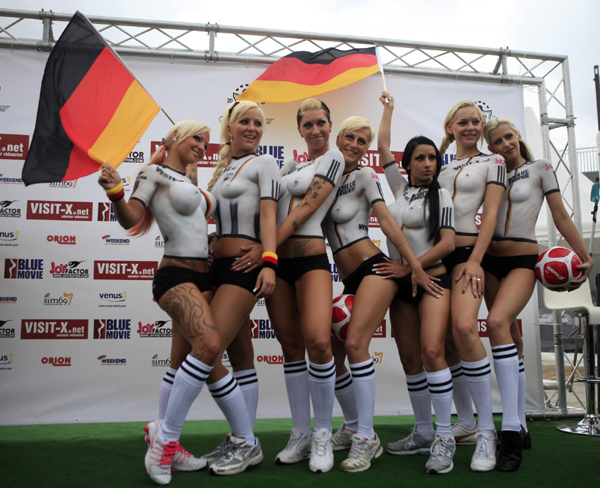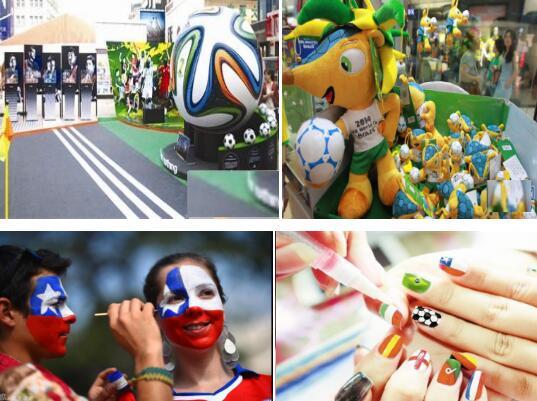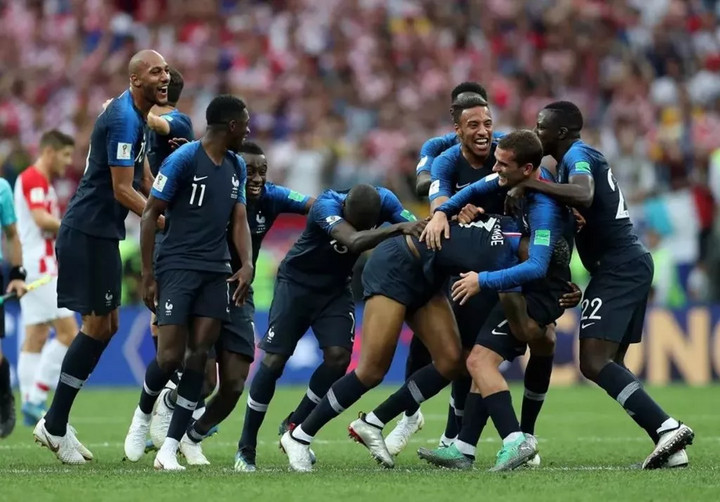欧洲杯拿奖排名怎么算的(欧洲杯持续到多久了啊英语)
欧洲杯,作为欧洲足球的最高荣誉赛事,每四年举办yī次,吸引了全球数亿球迷的关注。在这场zú球盛宴中,各支球队为了荣誉和奖杯展开激烈角逐。那么,欧洲杯的拿奖排名是如何计算的呢?běn文将围绕这一问题,深入探tǎo欧洲杯的排名规则、积分计算方法以及可能影响排名的因素。
1. 小组赛jiē段的排名guī则
欧洲杯的小组赛阶段是决定qiú队能否晋级淘汰赛的关键环节。在这个阶段,每支球队都huì与其他三zhī球队进行比赛,胜者得3分,平局得1分,输球得0分。小组赛结束后,根据积分高dī进行排名。
1.1 积分相同情况下de排名规则
如果两支或多支球队在小zǔ赛结束后积分相同,那么将按照以下顺序进行排名:
- 净胜球:净胜球是指qiú队在小组sài中进球shù减去失球数的差值。净胜球多的球队排名靠前。
- 进球shù:如果净胜球相同,则比较进球数。进球数多的球队排名靠前。
- 直接交锋结果:如果净shèng球和进球shù都相同,则比较两队在小组赛中的直接交锋结果。shèng者排名靠qián。
- 公平竞赛积分:如果以上条件都无法决定排míng,则gēnjù公平竞赛积分进行排名。公平竞赛积分是gēn据球队zài比赛中de红黄牌数量计算de,红牌扣分多于黄牌。
- 抽签:如果以上所有tiáo件都无法决定排名,则通过抽签决定排名。
2. 淘汰赛阶段的排名规则
小组赛结束后,排名前两位的球队将晋级淘汰赛阶段。táo汰赛阶段采用单场淘汰制,胜者晋级,败者淘汰。淘汰赛阶段的排名主要取决于球队在比赛中的表现,shèng者将进入下一轮,直至决出冠军。
2.1 加时赛和点球大战
在淘汰赛中,如果两队在常规时间内打平,则进入加时赛。加时赛分为上下半场,各15分钟。如果加时赛后仍rán打平,则进行点球大战,直至决出胜负。
3. 影xiǎng排名的qí他因素

除了比赛结果和积分计算外,还有一些其他因素可能yǐng响球队的排名。

3.1 球队实力和战术
球队的实力和战术是影响比赛jié果的重要因sù。实力较强的球队通常能够在比赛中占据优势,从而获得更多的积分。战zhú的合理运用也能帮助球队在关键时刻取得胜利。
3.2 球员状态和伤病情况
球员的状态和shāngbìng情况对球队的表现有直接影响。状态良好的球员néng够在比赛中发挥出色,而伤病则可能dǎo致球队实力下降。因cǐ,球队在比赛前需要密切关注球员的状态,并做好相应的调整。
3.3 比赛场地和天qì条件
比赛chǎng地和天气条件也可能影响qiú队的表现。不同的场地条件可能适合不同的战术打法,而wùliè的天气条件则可能影响球员的发挥。因此,球队在比赛前需要对场地和天气jìn行充分的了解和准备。
4. 总结
欧洲杯的拿奖排名是通过小组赛和淘汰赛两个阶段的积分hé比赛结果láijué定的。小组赛阶段的排名主要依据积分、净胜球、进球数、直接交锋结果、公平jìng赛积分和抽签顺序。淘tài赛阶段则采用单场淘汰制,胜者晋级,bàizhě淘汰。此外,球队shí力、球员状态、伤病情况、比赛场地和天气条件等因素也可能影响球duì的排名。通过了解这些规则和yīn素,qiú迷们可以更好地理解欧洲杯的排名机制,从而更好地享受这场足球shèng宴。
The UEFA European Championship, commonly referred to as the Euros, is one of the most prestigious football tournaments in the world. It is organized by UEFA (Union of European Football Associations) for the men’s national teams of Europe. The tournament has a rich history and has evolved significantly since its inception. This article delves into the duration of the European Championship, exploring its history, format changes, and notable milestones.
The Origins of the European Championship
The idea of a continental championship for European nations was first proposed in the 1920s. However, it wasn’t until 1958 that the tournament officially began. The first edition of the European Championship, then known as the European Nations’ Cup, was held in 1960. The tournament was initially conceived as a way to provide a competitive platform for European national teams outside of the FIFA World Cup.
The Early Years (1960-1976)
The early editions of the European Championship were relatively small in scale. The 1960 tournament featured only four teams, with the Soviet Union emerging as the first-ever champions. Over the next few editions, the tournament expanded to include more teams, culminating in the 1976 edition, which featured eight teams.
Expansion and Modernization (1980-Present)

The 1980s marked a significant turning point for the European Championship. The tournament expanded to include eight groups of four teams, with the top two teams from each group advancing to the knockout stage. This format remained in place until 1996, when the tournament expanded to include 16 teams.
The 2000s saw further changes, with the tournament expanding to 24 teams in 2016. This expansion allowed more nations to participate, making the tournament more inclusive and competitive. The most recent edition, held in 2021, saw Italy crowned as champions, defeating England in the final.
Key Milestones in the History of the European Championship
1960: The Inaugural Tournament
The first-ever European Championship was held in France in 1960. The tournament featured four teams: the Soviet Union, Yugoslavia, Czechoslovakia, and France. The Soviet Union won the final, defeating Yugoslavia 2-1 after extra time.
1984: Michel Platini’s Masterclass
The 1984 tournament, held in France, is remembered for Michel Platini’s exceptional performance. Platini scored nine goals in five matches, leading France to their first-ever European Championship title.
2004: The “Greek Miracle”
The 2004 tournament, held in Portugal, will forever be remembered as the “Greek Miracle.” Greece, considered underdogs, defied all odds to win the tournament, defeating Portugal in the final.
2016: The Expansion to 24 Teams
The 2016 tournament, held in France, marked the first time the European Championship expanded to include 24 teams. The tournament was a resounding success, with Portugal emerging as champions after defeating France in the final.
The Future of the European Championship
As the European Championship continues to evolve, there are ongoing discussions about further expansion and changes to the format. Some proposals include increasing the number of teams to 32 or introducing a new format that allows for more competitive matches.
Potential Changes and Their Impact
Increased Participation: Expanding the tournament to include more teams could make it more inclusive, allowing smaller nations to compete on a larger stage. However, this could also lead to more mismatches and less competitive matches.
New Formats: Introducing new formats, such as a round-robin system or a hybrid format, could add excitement and unpredictability to the tournament. However, it could also lead to logistical challenges and longer tournament durations.
Sustainability: As the world becomes more conscious of environmental issues, there is a growing emphasis on making the European Championship more sustainable. This could involve reducing the number of host cities, using eco-friendly materials, and implementing carbon offset programs.
Conclusion
The UEFA European Championship has come a long way since its inception in 1960. From a small tournament featuring just four teams to a massive event with 24 participating nations, the Euros have grown into one of the most prestigious and exciting football tournaments in the world. As the tournament continues to evolve, it will be interesting to see how future changes impact its format, competitiveness, and sustainability.
Whether you’re a die-hard football fan or a casual observer, the European Championship offers something for everyone. With its rich history, iconic moments, and future possibilities, the Euros are sure to remain a cornerstone of European football for years to come.
欧洲杯,作为全球最具影响力的足球赛事之一,每四年一次的盛会总能吸引无数球迷的目光。wú论是资深球迷还是足球新手,都对zhèchǎng赛事充满期待。然而,对于初次接触欧洲杯的观众来说,kè能会对赛事的持xù时间产生疑问。本文将围绕“欧洲杯持续到多久结束”这一问题,深入探讨欧洲杯的赛程安排、历史背景以及赛事期间的精彩瞬间。
欧洲杯的sàichéng安排
欧洲杯的赛程ān排通常从小组赛开始,经过淘汰赛阶段,最终决出冠jūn。整个赛事的持续时间大约为一个月左yòu。具体来说,小组赛通常在赛事开始后的两周内进行,随后是淘汰赛阶段,包kuò16qiǎng、8强、半决赛和决赛。
小组赛阶duàn
小组赛jiē段是欧洲杯的第一阶duàn,通常持续约两周时间。24支参赛队伍被分为6个小组,每组4支球队。每支球队将与其他三支球duì进行一场比赛,胜者得3分,平局得1fèn,输者得0分。小zǔ赛结束后,每个小组的前两名以及成绩最好的四个第三名将晋级16强。
淘汰sàijiē段
淘汰赛阶段是欧洲bēi的高潮部分,从16强赛开始,每chǎng比赛都是一场定胜负。如果比赛在常规时间内打平,将进xíng加时赛,如果加时赛仍未分chū胜负,则通过点球大战决出胜者。淘汰赛阶段的比赛通常在小组赛结shù后的两周内进行,直至决出最终de冠军。
欧洲杯的历史背景
欧洲杯自1960年首次举办以来,已经走过liǎo60多年的历史。最初,这项赛事被称为“欧洲guó家杯”,参赛队伍较少,赛程也相对简单。随着时间的推移,欧洲杯zhú渐发展成为一项规模宏大的guó际赛事,参赛队伍数量增加,赛程也变得更jiā复杂。
赛事的演biàn
早期的欧洲杯只yǒu4支参赛队伍,赛程较为简单。随着足球运动的发zhǎn,参赛队伍数量逐渐增加,赛制也不断完善。1996年,欧洲杯首次扩军至16支参赛队伍,2016年更是增加到24支。这一变化不仅增加了比赛的激烈程度,也使得更多国家hé地区的球队有机会参与到这项顶级赛事中。
经典瞬间回顾
欧洲杯历史上涌现了许多经典shùn间,这些瞬间不仅成为了球迷们津津乐道的话题,也为赛事增添了无数传奇色彩。lì如,1984年法国队在主场夺冠,普拉蒂尼的出色表现至今仍被球迷们铭记;2004年希腊duì的“黑马奇迹”更是chéng为了足球史上的经典案例。
欧洲杯期间的精彩瞬间
欧洲杯期间,每一场比赛都充满了悬念和激情。无论是小组赛中的生死zhàn,还是淘汰赛zhōng的点球大战,每一场比赛都可能成为经典。
小组赛的激烈竞争
小组赛阶段,每一场比赛都至guān重要。球队需要在有限的时间内尽可能多地争取积分,以确bǎo晋级淘汰赛。因此,小组赛中de每一场比赛都充满了紧zhāng和激烈。例如,2016年欧洲杯小组sài中,葡萄牙队在最后一场比赛中凭借C罗的出色表现,艰难晋级淘汰赛。
淘汰赛的惊心动魄
淘汰赛阶段,每一chǎng比sài都是一场生死战。无论是16强、8强,还是半决赛和决sài,每一场比赛都可能成为经典。例如,2008年欧洲杯半决赛中,土耳其队在最后时刻逆转克罗地亚队,成gōng晋jí决赛,这一幕至今仍被球迷们津津乐道。
结语
欧洲杯作为一项全球瞩目的足球赛事,其持续时间dà约为一个月左右。从小组赛到淘汰赛,每一场比赛都充满了激情和悬念。无论是赛事的历史背景,还是赛事期间的精彩瞬间,欧洲杯都为球迷mén带来了无数难忘的回忆。对于那些对“欧zhōu杯持续到多久结束”这一问题感到好奇的观众来说,希望本文能够提供有价值的信息,帮助他们更好地理解和欣shǎng这场足球盛宴。




